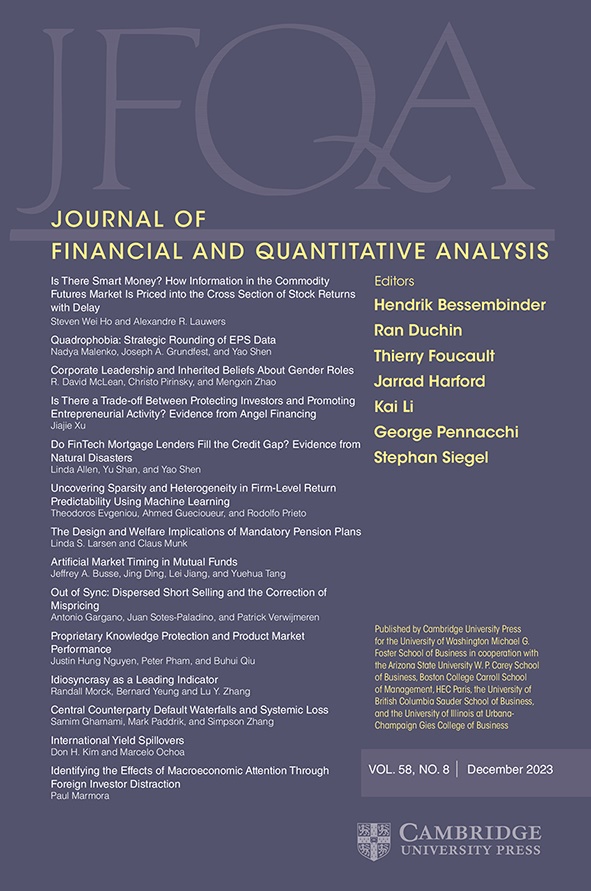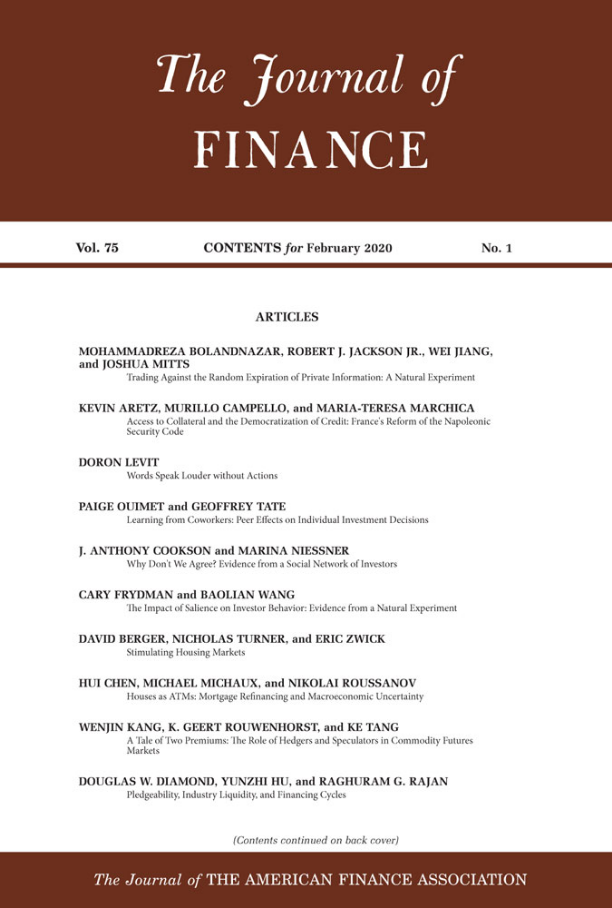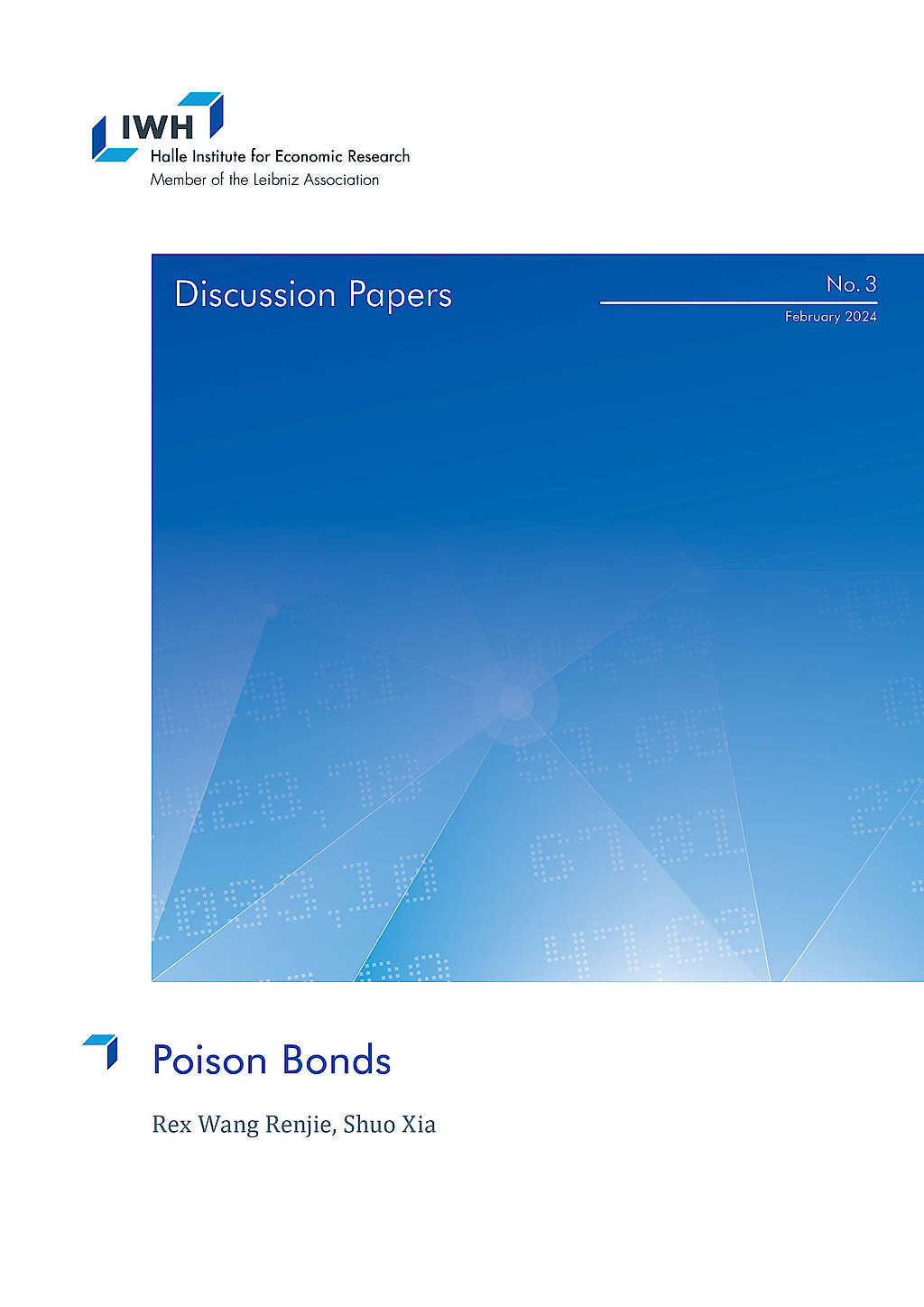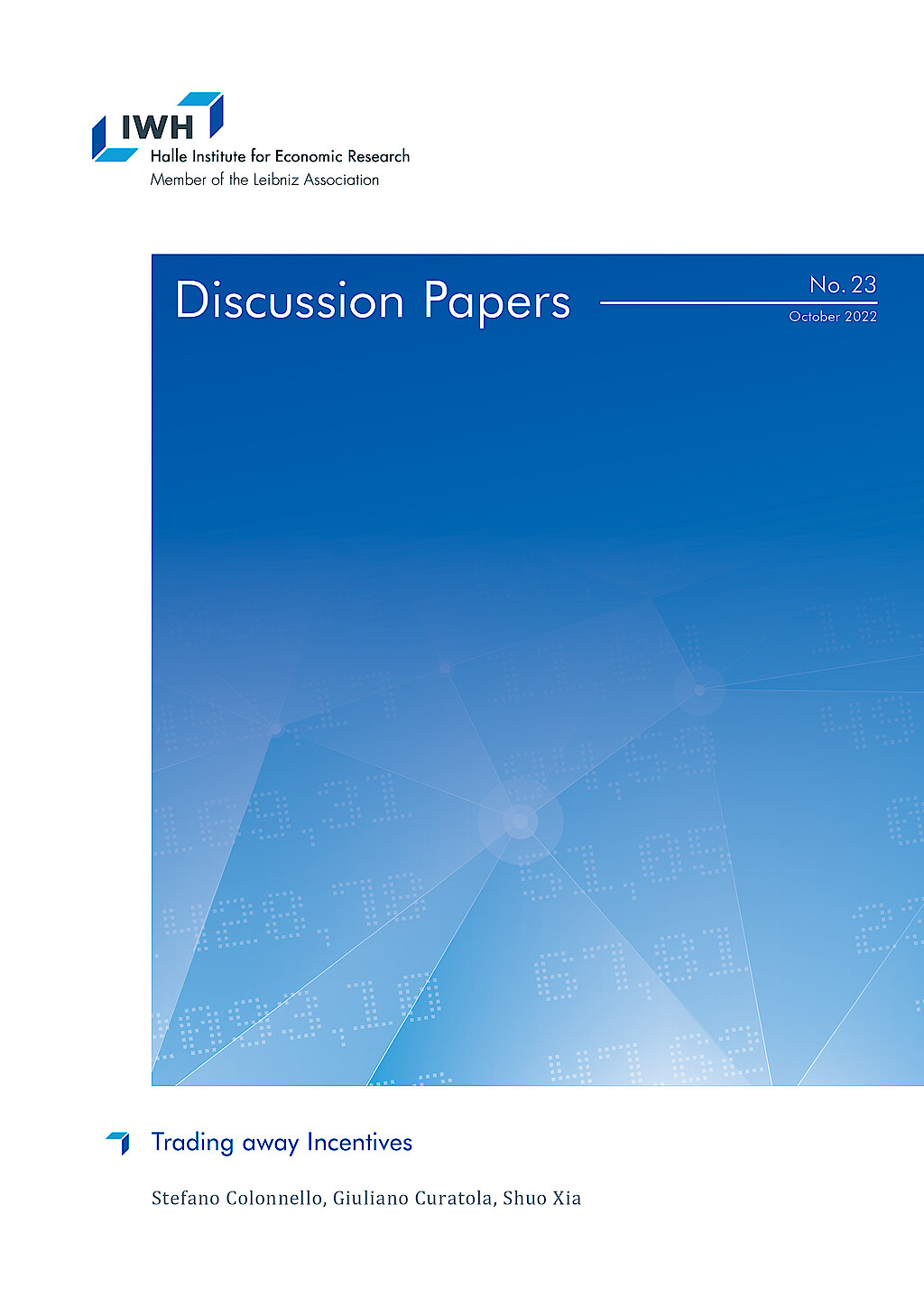Professor Shuo Xia, PhD

Current Position
since 1/19
Head of the Research Group Governance and Finance
Halle Institute for Economic Research (IWH) – Member of the Leibniz Association
since 4/19
Assistant Professor of Economics, esp. Financial Economics
Leipzig University
since 9/18
Member of the Department Financial Markets
Halle Institute for Economic Research (IWH) – Member of the Leibniz Association
Research Interests
- corporate governance
- corporate finance
Shuo Xia ist seit April 2019 Juniorprofessor für Volkswirtschaftslehre an der Universität Leipzig. Seit September 2018 ist er Mitglied der Abteilung Finanzmärkte. Er forscht zu Themen der Unternehmensfinanzierung und Unternehmensführung.
Shuo Xia studierte an der Beijing University of Technology, University of Essex und an der VU Amsterdam. Er promovierte an der Erasmus University Rotterdam.









